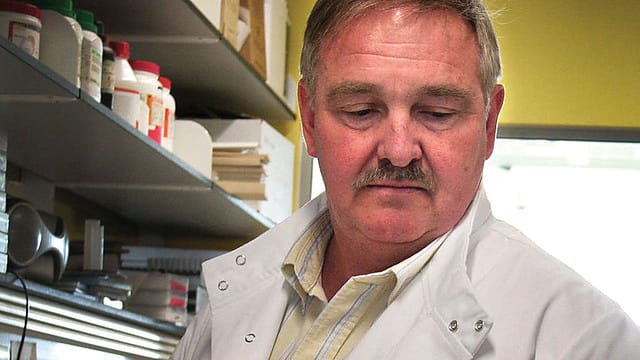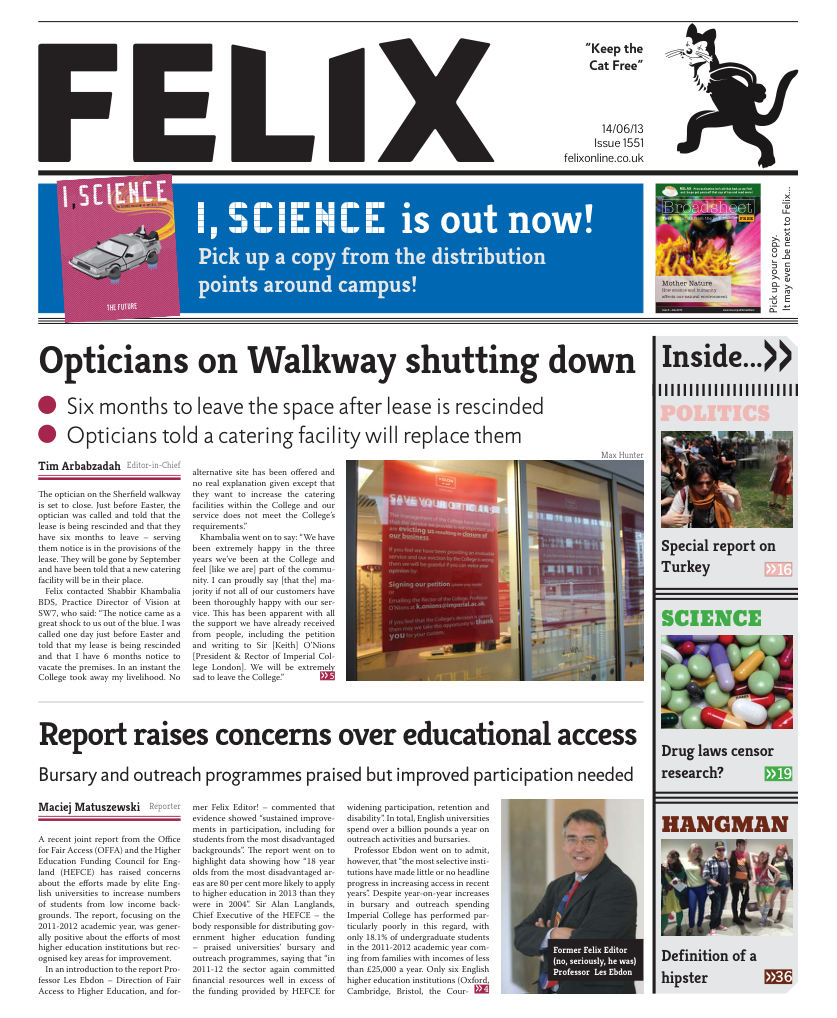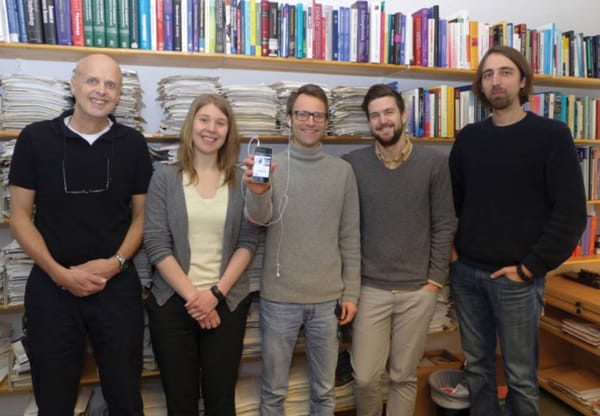Let’s not go Nutts: Imperial Professor speaks about possible benefits of illegal psychoactive drugs
But is the government suppressing research? Philippa Skett takes a look at Nutt’s latest paper

Imperial’s own Professor David Nutt, Head of the British Neuroscience Association, former chairman of the Advisory Council on the Misuse of Drugs (ACMA), and frenemy of Home Secretary Jacqui Smith after comparing horse riding dangers to taking ecstasy, isn’t one for keeping quiet when it comes to drugs. It therefore came as no surprise when this week his paper on drug legislation and its possible influence in neuroscience research came with an underlying message: it’s about time the government got their act together.
The paper, published this Wednesday in Nature Reviews Neuroscience, outlines how the national laws and international conventions surrounding psychoactive drugs (those that effect the brain) has significantly delayed further research into them, stating, “This hindering of research and therapy is motivated by politics, not science... It’s one of the most scandalous examples of scientific censorship in modern times.”
Psychoactive drugs such as cannabis, LSD, MDMA, and psilocybin are regularly classified as more “dangerous” than others, including heroin, which result in erecting complex bureaucratic barriers around research that often are impossible to overcome. However, preliminary research suggests such drugs may offer therapeutic treatments for those suffering from mental disorders.
Such classifications are there for a reason though, surely? Nutt argues against this, saying drug classification procedures are flawed. The USA classes drugs by Schedules, with Schedule I roughly the equivalent to Class A/B drugs and encompassing cannabis, LSD and MDMA among others. Currently, part of the criteria for a Schedule I drug is that it has no accepted medical use. The fact that, with research severely limited for Schedule I drugs, there is no chance of finding medical uses for such drugs, Nutt points out that such arguments are circular in nature.
Not only that, but with cannabis having known medicinal purposes and can be legally prescribed in 18 states, it appears that the criteria either are not being adhered to purposefully, or the Americans simply can’t understand their own rules.
That is not to say we are faring any better across the pond – the UK too are appearing dismally incoherent when it comes to drug classification. Beyond the Class System used we too indulge in a Schedule-based approach that places cannabis, LSD, MDMA, and psilocybin above heroin in respect to the same sort of criteria the USA use, making heroin more accessible (if only by a fraction) for research than those that possess psychoactive properties.

Research that has managed to squeeze through the bars of bureaucracy has provided a great insight into what we are actually missing. Cannabinoid 1 receptors which respond to cannabis-derived compounds are incredibly widespread throughout the brain, and the inhibition of using cannabis in research is hindering the understanding of these.
Cannabis may also aid alleviation of ADHD symptoms safely, but again with the laws comes little literature published to help develop this idea. Not only that, other products of the plant may be used to treat seizures, anxiety, psychosis and even addiction, but again, since we really aren’t allowed anywhere near the plant in the labs by the government we can’t really help with any of these any time soon.
MDMA too may provide more highs in medicinal research than it currently does for art students under derelict bridges in East London. With a small trial in the USA managing to prove that MDMA-based treatment may benefit those suffering from PTSD, replications are desperately needed to develop this, as currently PTSD management is scarce. Pro-empathy actions (the fancy way of describing of how MDMA makes you love everything so deeply and emotionally, and, unfortunately, embarrassingly so) may also help those with autism, and its ability to reduce tremors may offer therapeutic options for those with Parkinson’s Disease.
Not only that but the spike in use of mephedrone, a stimulant similar to MDMA, correlated to a 20% decrease in deaths due to cocaine in one year. However, with the banning of this and its analogues, research into its possible, controlled use as a substitute for cocaine addiction is no longer a possibility.
LSD, before its ban in the 1960s under speculation that its use by American youths was behind the decline of involvement in the Vietnam War, was showing significant progress in neuroscience research too. It had potential to be a treatment for alcoholism, and as an aid in easing those with a terminal illness.
Psychedelics in general were theorised to treat those with migraines, but research on this was hindered when LSD and magic mushrooms in particular were moved to Schedule I status. Obviously, such findings are not clearly indicative of anything substantial, but nor do they lack the ability to develop into something within the future. Nutt has never been one to shy away from targeting the government about its legislations, which are often based on politics as opposed to science, and during his stint as ACMD chairman, ranked tobacco and alcohol as having greater negative effects due to dependence and physical harm then cannabis and LSD.
His continued rebuttal against legislation using scientific evidence led to his dismissal from the government, but it seems increasingly difficult to argue against him with publications such as these featuring between the pages of such a respected journal.
Regardless of any opinion about legalisation or declassification of drugs, it does seem that there is a distinct lack of both scientific knowledge and rigour when setting drug classifications, and it is imposing significant hindrances on the progression of neuroscience research. The government may have made a mistake in letting Nutt go – it seems now more than ever a scientist is needed to keep politicians in check.
DOI: 10.1038/nrn3530









